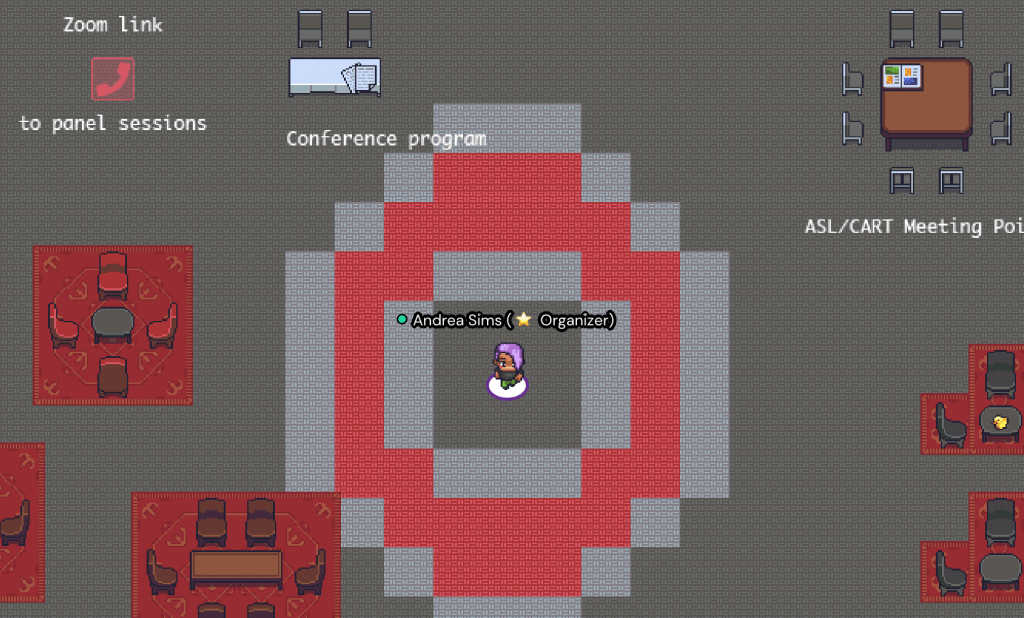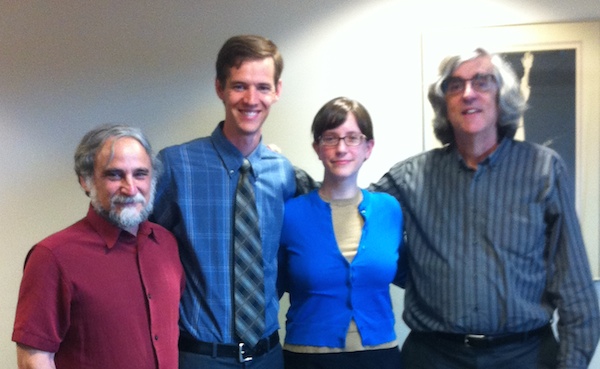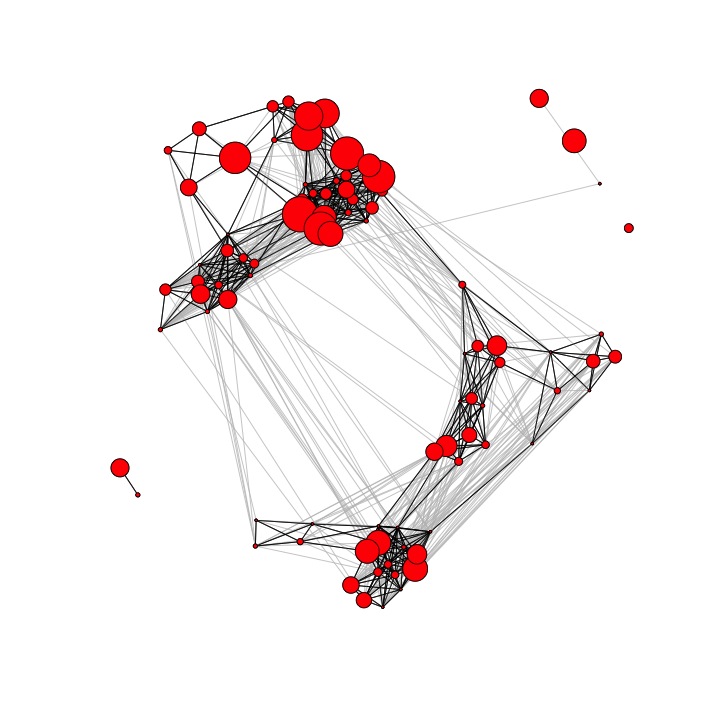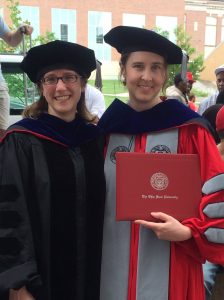We got to welcome more than 160 morphologists from around the world to OSU (virtually) for the 5th American International Morphology Meeting (AIMM5) last weekend. It was four busy but exciting days of stimulating talks and interesting discussion. (Check out this picture of one of the poster sessions that took place in Gather.Town!) We hope that everyone enjoyed the conference. We certainly did!
It was also an opportunity to show off some of the morphological research happening here at OSU. The program included five presentations from our group:
- Martha Booker Johnson and Andrea D. Sims, “Using word vectors to investigate semantic transparency cross-linguistically”
- Kyle Maycock and Andrea D. Sims, “Albanian second-position clitics as edge inflection: Evidence from cumulative exponence in the noun phrase”
- Connor Rouillier, “The effect of event structure on subject-verb agreement in Najdi Arabic”
- Noah Diewald, “Wao Terero lexical suffixes: Realization at the lexical semantic-discourse interface”
- Micha Elsner and Andrea D. Sims, “Analogical modeling of morphology for L1 effects in language contact”
There were also presentations from OSU “friends of the morphology lab” Brian Joseph, Shuan Karim, and John Grinstead (with colleagues).
We look forward to AIMM6, to be held at the University of California, San Diego in 2023!



 In September, Andrea Sims gave a keynote talk, “Morphological connectivity in the mental lexicon,” at the 17th Texas Linguistics Society meeting, in Austin, TX.
In September, Andrea Sims gave a keynote talk, “Morphological connectivity in the mental lexicon,” at the 17th Texas Linguistics Society meeting, in Austin, TX.


